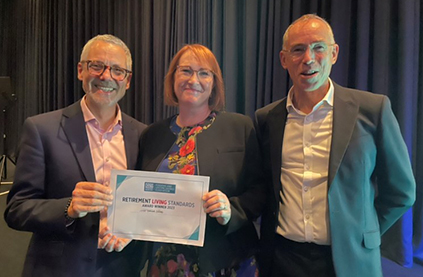Two-thirds of women in their 50s don’t know how much is saved in their pension
Two-thirds of women aged between 50 and 59 (66%) admit that they don’t know how much they have saved for their retirement, according to new research from TPT.

-
60% of women in their 50s are worried they are not saving enough for retirement
-
Men in their 50s typically have £17,014 more saved for their retirement than women
-
Rising energy bills, food bills and mortgage repayments are preventing these women from saving more
-
More than four in ten women in their 50s think the cost-of-living crisis will force them to work for longer – these women expect to work an extra five years to cover the cost
Two-thirds of women aged between 50 and 59 (66%) admit that they don’t know how much they have saved for their retirement, according to new research from TPT, a leading workplace pension scheme serving over 2,600 organisations. Just over half of men (51%) in this age group also don’t know how much is saved in their pensions. The research looks at how prepared people in their 50s are for retirement.
Despite not knowing exactly how much they have saved for retirement, 60% of women in their 50s worry they are not saving enough. The research found that among those who know how much they have saved, the average man in his 50s has saved £17,014 more than the average woman.
TPT’s research found that rising energy bills are a significant burden to pension saving for 71% of women. Two-thirds (66%) also struggled with increasing food bills and 25% with higher mortgage repayments. As a result, almost half of women in their 50s (48%) do not expect to be able to afford a moderate retirement based on PLSA Retirement Standards.
The research also shows the cost-of-living crisis will force many women to work for longer to afford retirement. More than four in ten women in their 50s (46%) expect to work for longer, typically planning to work for an additional five years to cover the cost of retirement.
Helen Taylor, Corporate Services Director of TPT Retirement Solutions, comments:
"Coping with the rising cost of living has become a major challenge for many people, and our research shows women are struggling more than men. While inflation and energy bills may fall later this year, the cost-of-living crisis is likely to have a long-term impact on how prepared people are for retirement. We believe that early planning for retirement can play a crucial role in easing the worries of savers.
As most women in their 50s plan to retire in their mid-60s, they still have time to build their pension savings. However, the earlier you start increasing pension contributions, the easier it will be to build a more substantial savings pot. By providing a secure and sustainable source of income in retirement, pensions can help individuals and families plan for the future, manage their finances, and maintain a decent standard of living."
Notes to Editors: Censuswide Survey on behalf TPT Retirement Solutions of 2,009 50-59 year olds who are employed. Survey completed between 27.02.2023 and 01.03.2023.
Related news & insights
-

We’ve won the Retirement Living Standards Award
We’re delighted to announce that we’ve won the Retirement Living Standards Award for our communications to support and engage Defined Contribution (DC) members with their pension savings. -

We're Pension Provider of the Year!
We’re delighted to have been named Pension Provider of the Year at the Money Age Awards 2023. The award recognised how we support our Defined Contribution members on their pension journey with a combination of online tools, compelling communications and fund choices. -

Introducing our new responsible investment pension funds
We’re introducing new ways to invest in a sustainable future with 6 new self-select pension funds, available for members of TPT’s defined contribution schemes from the 30th of September 2023. -

TPT launches new self-select funds to enhance responsible investment choices for DC members
TPT is launching a range of new investment funds for its Defined Contribution members.
